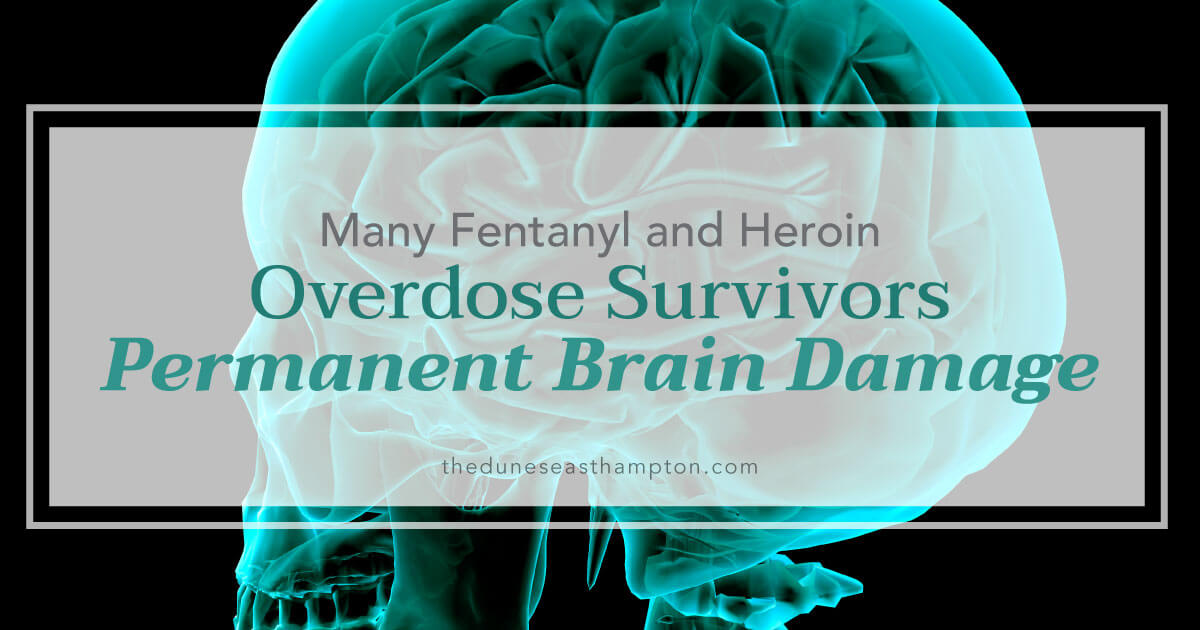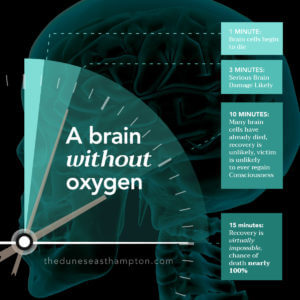 2016 was the “Year of the Fentanyl Crisis” for the United States. The Drug Enforcement Administration (DEA) stated that prescription pain pills, heroin, and fentanyl are killing people at a “horrifying rate,” calling it a “public health crisis of historic proportions.” Deaths from synthetic opioids – mainly fentanyl, the DEA notes – jumped by 79% from 2013 to 2014, from 3,097 related deaths to 5,544. But users have something to fear other than death from an overdose: doctors have now connected fentanyl/heroin overdoses with permanent brain damage.
2016 was the “Year of the Fentanyl Crisis” for the United States. The Drug Enforcement Administration (DEA) stated that prescription pain pills, heroin, and fentanyl are killing people at a “horrifying rate,” calling it a “public health crisis of historic proportions.” Deaths from synthetic opioids – mainly fentanyl, the DEA notes – jumped by 79% from 2013 to 2014, from 3,097 related deaths to 5,544. But users have something to fear other than death from an overdose: doctors have now connected fentanyl/heroin overdoses with permanent brain damage.
The Increase of Fentanyl in the United States
The frightening fentanyl surge the U.S. is currently experiencing is the result of a chain of events that begins with prescription opioids. The sale of opioid painkillers more than quadrupled from 1999 to 2014. Unnecessary opioid prescriptions and lack of awareness of the risk of addiction led to a major increase in the non-medical use and abuse of prescription painkillers. A painkiller addiction is expensive and difficult to maintain. Heroin, on the other hand, is cheap and widely available on the streets.
It is not surprising that many heroin users get their start with prescription pain medications. Many people do not realize the addictive nature of prescription drugs, and assume they are safe since they are legal. This misconception has led to thousands of new addictions across virtually every age, gender, and income level. Once a person gets addicted to prescription opioids, it is not a difficult transition to heroin – a stronger, cheaper, and more easily obtained opiate. From 2010 to 2014, the number of heroin-related overdose deaths more than tripled. In 2014, 10,574 Americans died from heroin overdoses.
Heroin is in higher demand, available in larger quantities, and used by more people than it has been in the last decade. The opiate epidemic, however, did not end with heroin. Starting in 2013, several states in the U.S. reported spikes in fentanyl-related overdose deaths. This marked increase was due to heroin distributors mixing their products with fentanyl and its analog, acetyl-fentanyl. It was not long before fentanyl-related deaths reached record-breaking proportions. Unfortunately, some of those fortunate enough to survive a fentanyl/heroin overdose have little chance of making a full recovery.
Understanding Fentanyl Overdose
Fentanyl overdoses are common due to the extreme potency of this man-made opioid. Fentanyl is 50 times more potent than heroin and 100 times more powerful than morphine. Many heroin users do not mean to ingest the much stronger fentanyl. Illegal drug distributors mix heroin with fentanyl to increase the heroin’s effects, or sell it, mixed with other chemicals, as counterfeit heroin. Unsuspecting heroin users ingest the mixture, thinking it to be pure heroin, and suffer overdoses.
Fentanyl is a strong painkiller that slows the heart rate and reduces respiratory function. Too much fentanyl in the system can cause respiratory failure, circulatory problems, drug overdose coma, and death. Symptoms of a fentanyl overdose include low blood pressure, pinpoint pupils, severe drowsiness, clammy skin, and seizures. When emergency response teams administer naloxone, the antidote to fentanyl and heroin, in time, it can prevent overdose death and save the life of the user. Sadly, naloxone is not enough to reverse the effects of loss of blood flow to the brain.
Fentanyl Overdose and Brain Damage
Permanent brain damage due to opiate overdose is a common issue. One doctor in British Columbia states that as many as 90% of the overdose survivors in the intensive care unit (ICU) have permanent brain damage they will not recover from. The high rate of brain damage comes from loss of blood flow and oxygen to the brain – also called brain hypoxia. When the brain does not get enough oxygen and nutrients, it cannot function properly. Brain hypoxia can lead to a variety of temporary or permanent conditions, including:
- Problems Concentrating
- Difficulty Making Decisions
- Memory Loss
- Reduced Ability to Move the Body
- Loss of Coordination and Balance
- Paralysis
- Hearing and/or Vision Impairment
- Inability or Impairment to Communicate, Read, or Write
- Brain Death
- Coma, or a Vegetative State
- Death
The extent of brain damage following an opiate overdose depends on how long the brain went without oxygen. Minutes, and even seconds, can alter the severity of the damage. On average, it takes three to five minutes of oxygen deprivation to the brain to cause permanent damage. Lack of oxygen to the brain during an overdose has led to thousands of survivors stuck in the ICU, in a drug overdose coma prognosis- brain dead. In effect, they are not “survivors” at all, but just victims in a different way.
Cases of Permanent Brain Damage in Overdoses
 Doctors from around the United States and Canada are reporting higher numbers of patients with permanent brain damage from overdoses relating to fentanyl, heroin, and/or other opiates. Many of these patients suffer complete brain death, and are in vegetative states. Family members have to decide whether to pull the plug on their loved ones or keep hoping against the odds. Extensive permanent brain damage can completely change a patient’s life, making him or her unable to ever walk, speak, or communicate again.
Doctors from around the United States and Canada are reporting higher numbers of patients with permanent brain damage from overdoses relating to fentanyl, heroin, and/or other opiates. Many of these patients suffer complete brain death, and are in vegetative states. Family members have to decide whether to pull the plug on their loved ones or keep hoping against the odds. Extensive permanent brain damage can completely change a patient’s life, making him or her unable to ever walk, speak, or communicate again.
With the shocking numbers of fentanyl-related overdoses in the last few years, it is more important than ever to seek treatment to stop an opiate addiction and prevent overdose. Treatment centers exist to help opiate addicts recover in time to avoid permanent brain damage or death. Understanding the risks of opiate addiction, and how quickly a prescription opioid habit can turn into a heroin/fentanyl dependency, can help reduce the number of opiate-related overdoses around the world.
Reducing the Risk of Brain Damage
Heroin is a dangerous enough drug, but now mixtures with fentanyl make an addiction more deadly than ever. If you see someone experience the signs of a heroin/fentanyl overdose, call 911 immediately and request emergency assistance. The faster paramedics can administer lifesaving procedures and perform rescue breathing, the lower the odds are of the person suffering permanent brain damage. Perform rescue breathing on the victim while you wait for emergency assistance. Tilt the victim’s head back, pinch his/her nose, and breathe into the victim’s mouth. Breathe out two short breaths, then one long breath. Continue every five seconds. If you or loved one is struggling with an opiate addiction, seek professional help and treatment as soon as possible.







